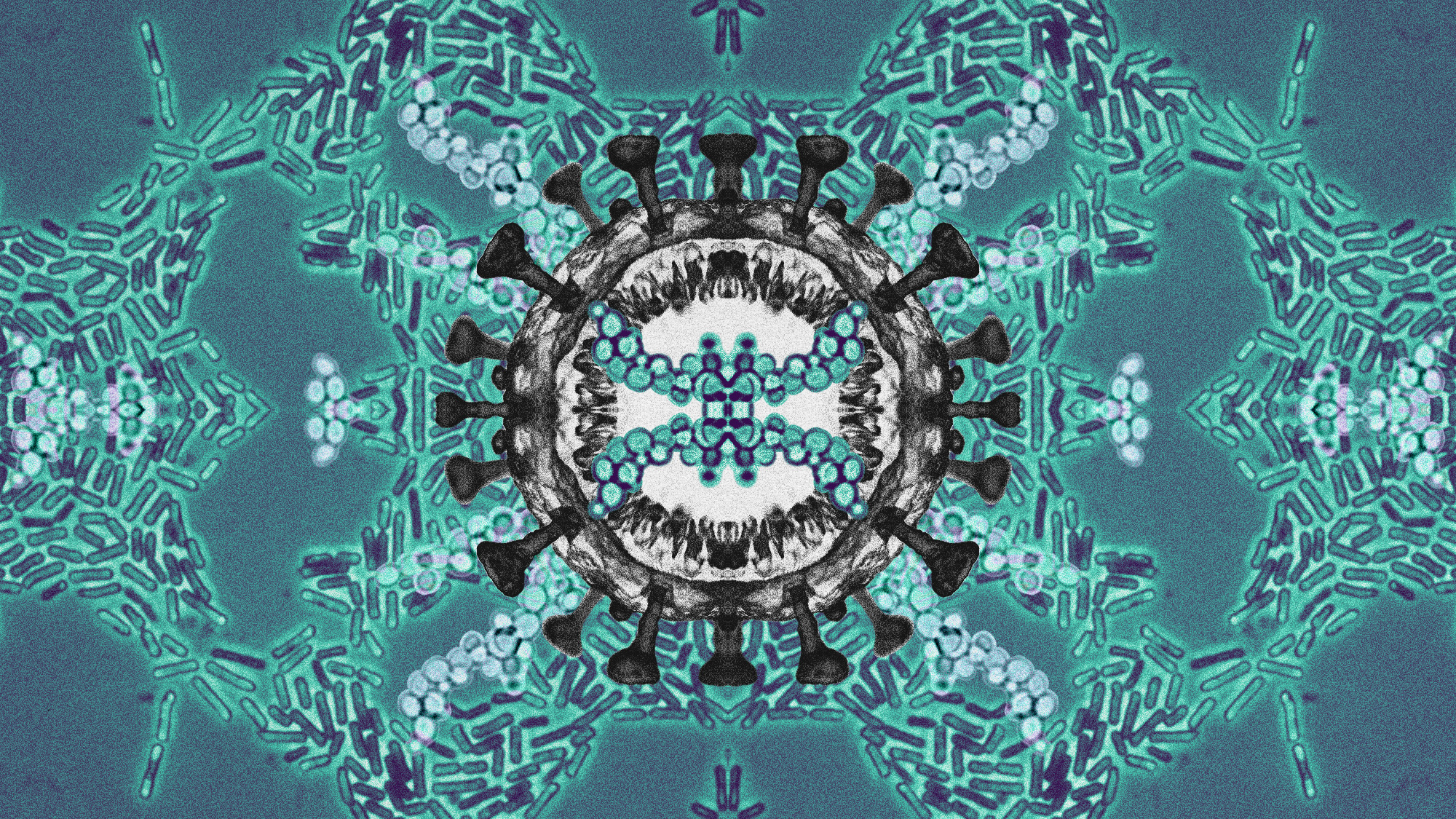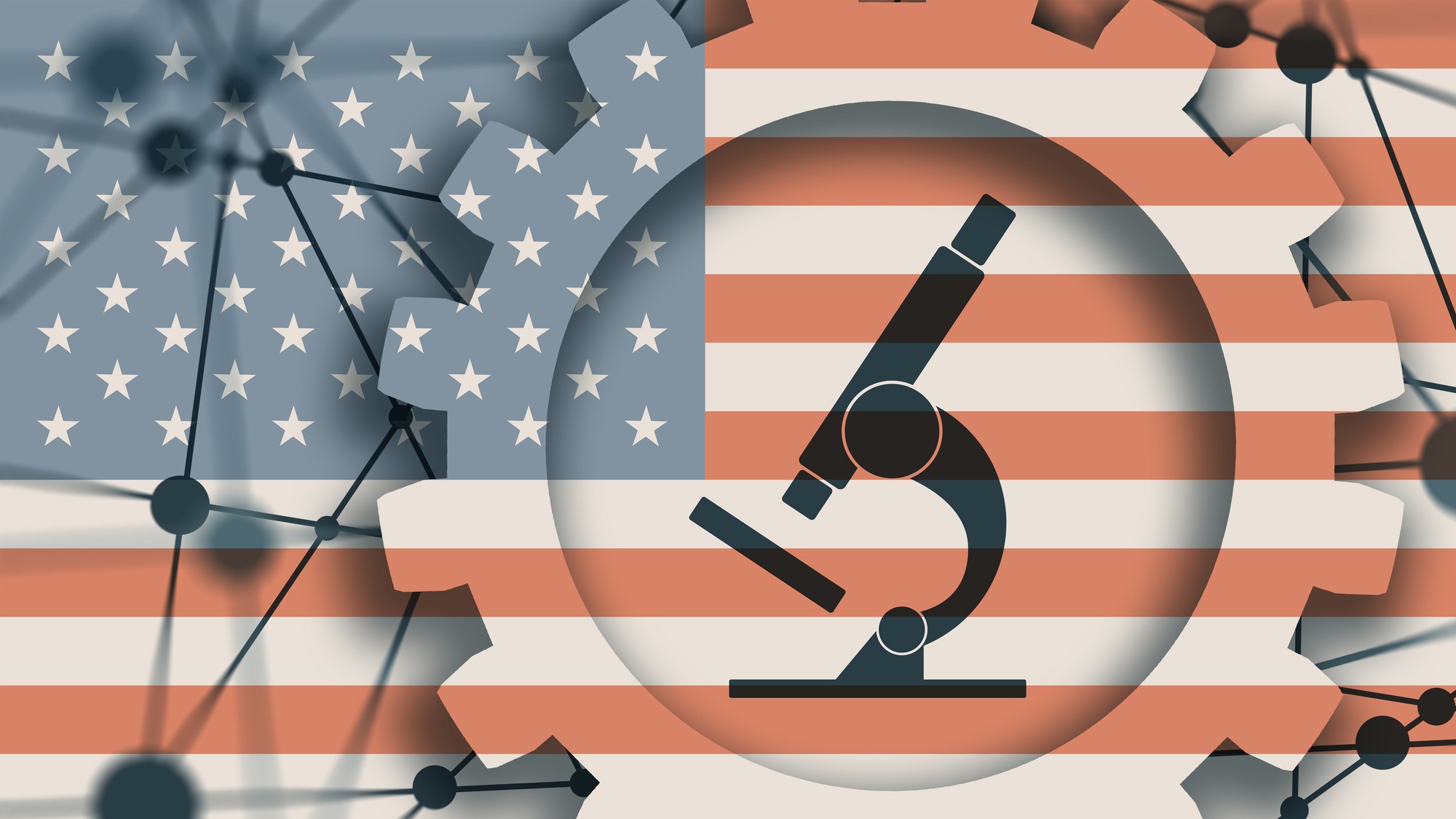Mirror bacteria could pose major health risks
The experimental research could have dangerous effects


A free daily email with the biggest news stories of the day – and the best features from TheWeek.com
You are now subscribed
Your newsletter sign-up was successful
Mirror bacteria and microbes are synthetic lifeforms made to reflect existing life on Earth. They could serve as tools to treat diseases, but some scientists are concerned about potentially catastrophic public health consequences. While the optimal creation of mirror bacteria has a long way to go, a group of experts have called for the research to stop altogether.
Upon reflection…
A group of scientists have warned against the development of mirror bacteria in a report published in the journal Science. The direction of a molecule is called its chirality, and this direction determines its structure and function. In nature, "DNA and RNA are made from 'right-handed' nucleotides, and proteins are made from 'left-handed' amino acids," said the report. "Driven by curiosity and plausible applications," researchers have "begun work toward creating lifeforms composed entirely of mirror-image biological molecules," also known as mirror life.
"Mirror molecules could be turned into therapies for chronic and hard-to-treat diseases, while mirror microbes could make bioproduction facilities, which use bugs to churn out chemicals, more resistant to contamination," said The Guardian. Researchers are interested in their use to create long-acting drugs for diseases like HIV and Alzheimer's. "It's inherently incredibly cool," Kate Adamala, a synthetic biologist at the University of Minnesota, said to The New York Times. "If we made a mirror cell, we would have made a second tree of life."
The Week
Escape your echo chamber. Get the facts behind the news, plus analysis from multiple perspectives.

Sign up for The Week's Free Newsletters
From our morning news briefing to a weekly Good News Newsletter, get the best of The Week delivered directly to your inbox.
From our morning news briefing to a weekly Good News Newsletter, get the best of The Week delivered directly to your inbox.
Despite potential positive applications, mirror bacteria have "unprecedented and largely overlooked risks," said the report. This is because "immune systems rely on recognizing specific molecular shapes found in invading bacteria," said CNN. If these shapes were reflected, "recognition would be impaired and immune defenses could fail, potentially leaving organisms vulnerable to infection." In turn, the infections caused by mirror bacteria could be lethal, and the mirror bacteria themselves could even be considered an invasive species.
High risk, low reward
While there would not be "many organic molecules inside a human body for a mirror cell to feed on," because their chirality is different from ours, a body "might find enough to grow slowly," said the Times. "And if the immune system did not detect the growing infection, it could spread without limit." In a worst-case scenario, a "victim of mirror cells would harbor a vast supply of the microbes, which could spread to other people and start a pandemic. And it would be one that medicine would be unlikely to stop."
If research to develop mirror bacteria is not halted, countermeasures can be taken, including "studying the interaction of mirror biomolecules with the immune system as well as developing detection methods and biosurveillance systems," said the report. "Although countermeasures could not prevent widespread harm, they might offer some limited or localized protection." There is not much to be concerned about just yet. The risks are "very speculative considering research is currently at a very early stage and a long way from being any threat," Tom Ellis, a professor of synthetic genome engineering at Imperial College's Centre for Synthetic Biology, said to CNN. A true viable mirror bacteria would likely take at least a decade to create, if not longer.
A free daily email with the biggest news stories of the day – and the best features from TheWeek.com
Devika Rao has worked as a staff writer at The Week since 2022, covering science, the environment, climate and business. She previously worked as a policy associate for a nonprofit organization advocating for environmental action from a business perspective.
-
 Political cartoons for February 16
Political cartoons for February 16Cartoons Monday’s political cartoons include President's Day, a valentine from the Epstein files, and more
-
 Regent Hong Kong: a tranquil haven with a prime waterfront spot
Regent Hong Kong: a tranquil haven with a prime waterfront spotThe Week Recommends The trendy hotel recently underwent an extensive two-year revamp
-
 The problem with diagnosing profound autism
The problem with diagnosing profound autismThe Explainer Experts are reconsidering the idea of autism as a spectrum, which could impact diagnoses and policy making for the condition
-
 AI surgical tools might be injuring patients
AI surgical tools might be injuring patientsUnder the Radar More than 1,300 AI-assisted medical devices have FDA approval
-
 Cows can use tools, scientists report
Cows can use tools, scientists reportSpeed Read The discovery builds on Jane Goodall’s research from the 1960s
-
 5 recent breakthroughs in biology
5 recent breakthroughs in biologyIn depth From ancient bacteria, to modern cures, to future research
-
 Do we need more right-wing scientists?
Do we need more right-wing scientists?Talking Point Academics have a 'responsibility' to demonstrate why research matters to people who are not politically left-leaning, says Wellcome boss
-
 Scientists are the latest 'refugees'
Scientists are the latest 'refugees'In the spotlight Brain drain to brain gain
-
 Bacteria can turn plastic waste into a painkiller
Bacteria can turn plastic waste into a painkillerUnder the radar The process could be a solution to plastic pollution
-
 Scientists want to regrow human limbs. Salamanders could lead the way.
Scientists want to regrow human limbs. Salamanders could lead the way.Under the radar Humans may already have the genetic mechanism necessary
-
 Is the world losing scientific innovation?
Is the world losing scientific innovation?Today's big question New research seems to be less exciting
